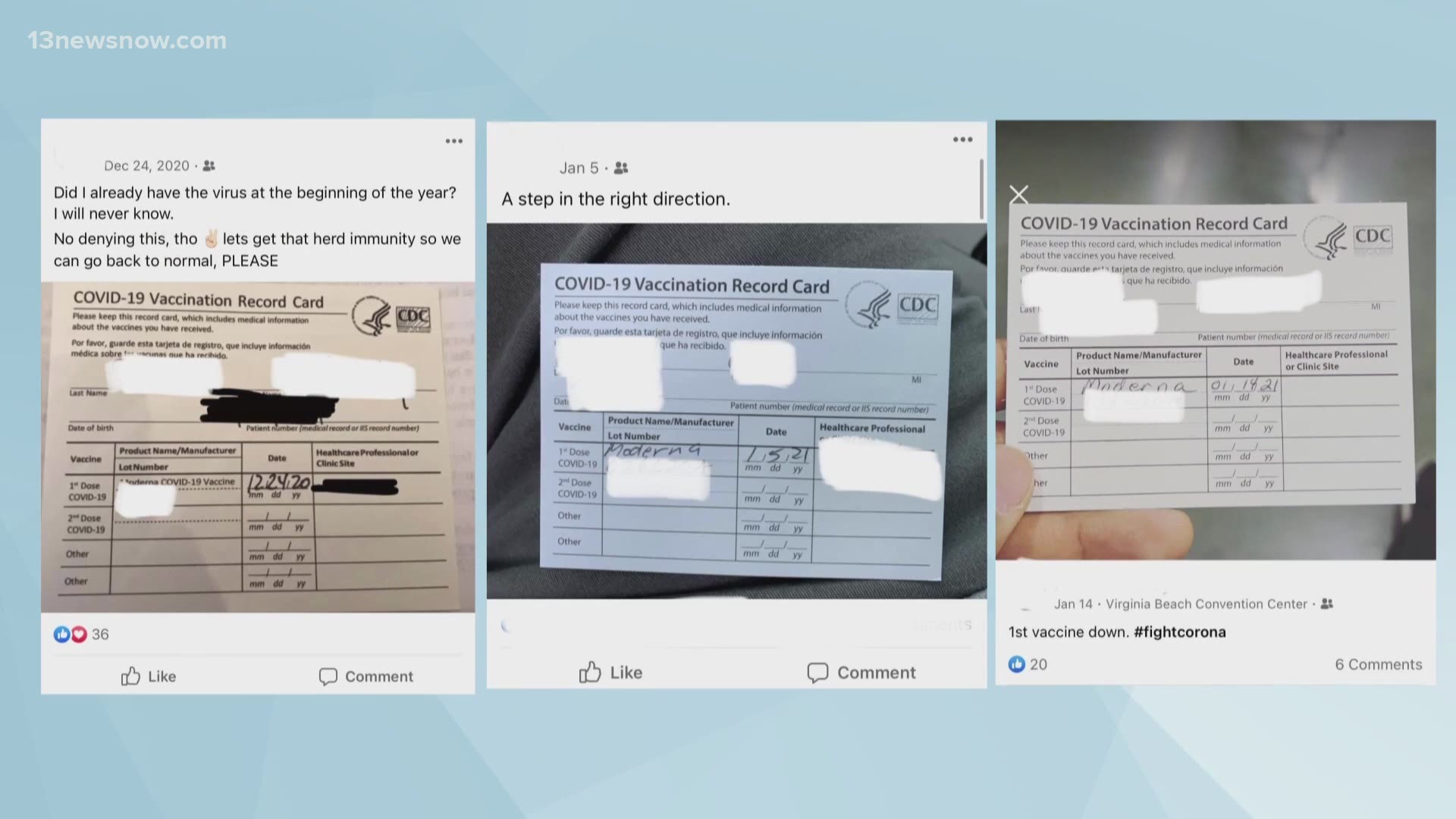HUNTSVILLE, Ala. — Those "vaccine card selfie" card that are popping up across social media? Bad idea.
Stick to the vaccine sticker selfie or photo frame.
"Posting your vaccine card and all, it goes back to your personal identity security. It's just one of those things that just gives somebody else, who doesn't have the whole picture, gives them another little slide to be able to put the whole album together and take advantage of you," said Belinda McCormick, Vice President of the Better Business Bureau of North Alabama.
Why not do a vaccine card selfie?
According to the BBB, your card has your full name and birthday on it, as well as information about where you got your vaccine. Scammers in Great Britain were caught selling fake vaccination cards on eBay and TikTok. It’s only a matter of time before similar cons come to the United States and Canada.
Even if your social media accounts have high privacy, screencaps can be shared. Posting photos of your card can help provide scammers with information they can use to create and sell phony ones, besides compromising your personal information.
The BBB suggests if you want to share the news, post a picture with just the sticker - or set a frame around your profile picture on Facebook, if you didn't get a sticker.
They said now is a good time to also check your security settings on all your social media platforms. "If you only want friends and family to see your posts, be sure that’s how your privacy settings are configured," they said.
Why is there a vaccination card?
The cards, given as part of your first vaccination, contain information including which vaccine you got, when you got it, and when you should have your follow-up shot, if you got a two-dose vaccine.
For those receiving their second dose of vaccine in Alabama, individuals must bring their COVID-19 Vaccination Record Card, which was provided when their first dose was received. This will allow providers to confirm the second dose is received within the recommended time frame. All doses of vaccine given are reported to the CDC, but having your card available streamlines the record-checking process.
Vaccination cards are not something new. They've been used for decades to help people track immunizations for themselves and/or their children, many of which are required to attend school, play sports, or work in certain jobs.
How can I safely share my vaccination on social media?
The BBB has these tips:
Share safely on social media:
- Be wary of answering popular social media prompts. Sharing your vaccine photo is just the latest social trend. Think twice before participating in other viral personal posts, such as listing all the cars you’ve owned (including makes/model years), favorite songs, and top 10 TV shows. Some of these “favorite things” are commonly used passwords or security questions.
- Share your vaccine sticker or use a profile frame instead. If you want to post about your vaccine, there are safer ways to do it. You can share a photo of your vaccine sticker or set a frame around your profile picture.
- Review your security settings. Check your security settings on all social media platforms to see what you are sharing and with whom. If you only want friends and family to see your posts, be sure that’s how your privacy settings are configured.

